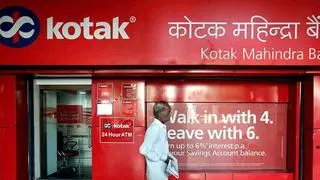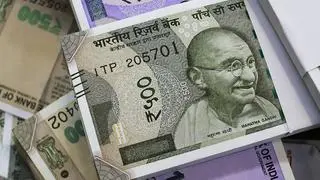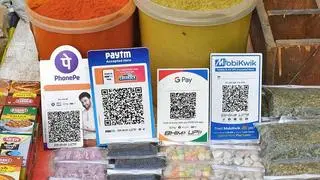The National Payments Corporation of India (NPCI) will submit its proposal for linking UPI (Unified Payments Interface) to credit cards on the Rupay network in about 10 days to the Reserve Bank of India, said MD & CEO Dilip Asbe.
“We are hoping that the RuPay credit card linking to UPI should get operationalised in a couple of months’ time,”Asbe said at a conference organised by Bank of Baroda.
He added that the organisation is in talks with several banks and card issuers, such as BoB Cards, SBI Cards, Axis Bank, and Union Bank of India.
‘Proposal in 10 days’
“Several banks have shown their interest to us. We should be able to submit our proposal to RBI in next ten days’ time and once we get the approval, we should be able to start in two months’ time,”he said.
The Reserve Bank of India, in its June monetary policy meeting, allowed linking of the UPI network to credit cards. The central bank had then said that initially the initiative will be launched on the Rupay network and will later be extended to other networks.
Asbe said that the objective behind the linkage is to expand the market and facilitate smaller credits for the existing 250 million users of the UPI platform. Without explicitly clarifying on MDR (merchant discount rates) for credit card UPI payments, Asbe said that NPCI might need to “take care of the smaller merchants” in terms of MDR, whereas the existing credit card servicing merchants can continue to pay the MDR charges.
MDR is the rate at which merchants are charged for accepting payments made via credit cards, debit cards, net banking and digital wallets. For wallets and PPI (prepaid payment instruments), the MDR is around 2-3 per cent, whereas transactions made via UPI and debit cards are free of charge.
Asbe said, the NPCI is also trying to build the cross-border payments mechanism for UPI transactions in geographies where the NPCI is present. While cross-border volumes in some geographies are present, they are likely to see a pick-up once the COVID-related travel restrictions open up.
“Of course, for that government-to-government and regulator-to-regulator connect is important. We hope Mauritius happens in the next few months. Many countries are looking to build cross-border transactions,”Asbe said.
On an overall basis, Asbe said that overall cash holding has increased, reflected in the rise in the average withdrawals, including from micro ATMs and PoS (points of sale). However, as economic uncertainty abates, he expects to see a rise in digital payments over the next 12-18 months, adding that the country should aspire to a “single digit” CIC (cash in circulation) to GDP ratio.








Comments
Comments have to be in English, and in full sentences. They cannot be abusive or personal. Please abide by our community guidelines for posting your comments.
We have migrated to a new commenting platform. If you are already a registered user of TheHindu Businessline and logged in, you may continue to engage with our articles. If you do not have an account please register and login to post comments. Users can access their older comments by logging into their accounts on Vuukle.